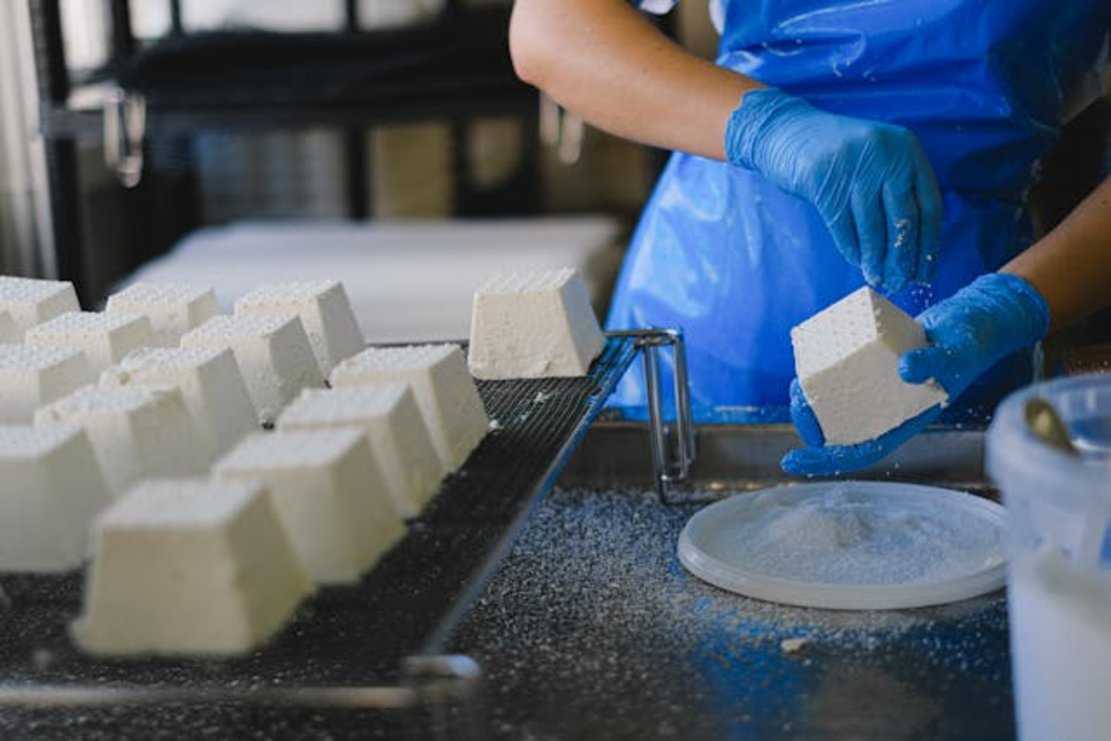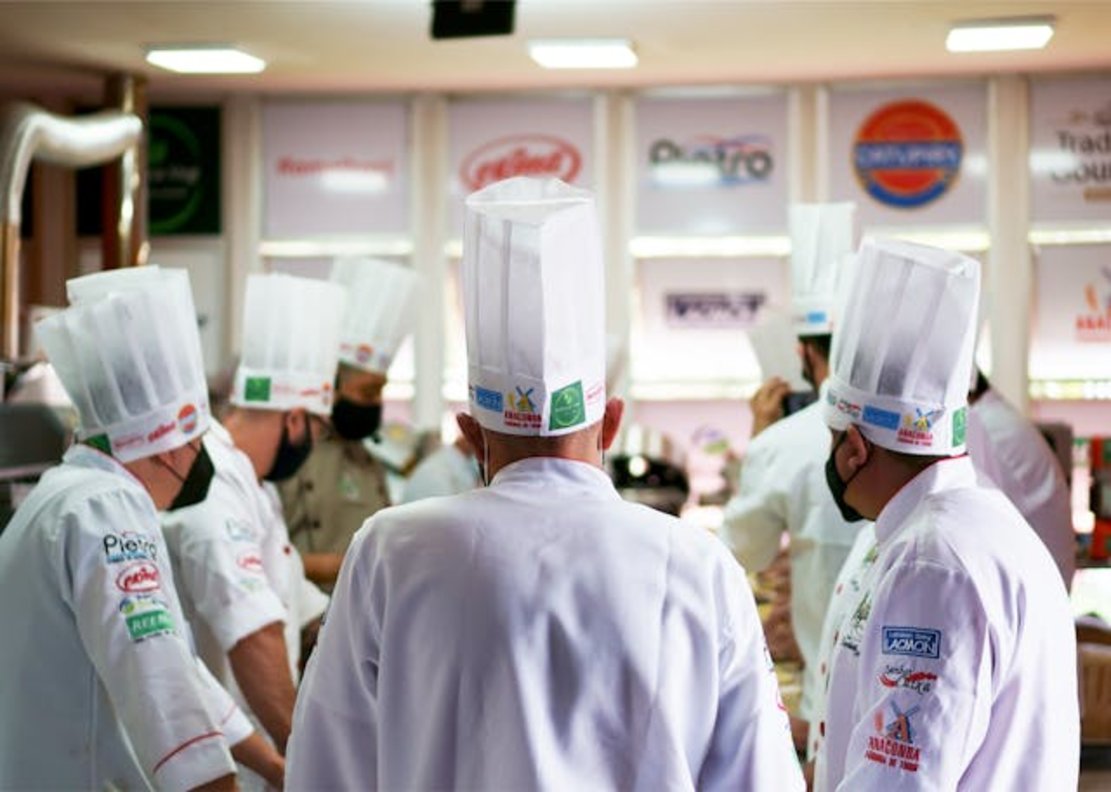Restaurant Management Tips and Tricks for Achieving Excellence
Knowing how to manage a restaurant is important because of its impact on your restaurant’s operations, finances, and, ultimately, success. You must manage the eatery’s front and back of the house while working in a fast-paced environment.
Learning about your core responsibilities and how to navigate them can ensure your restaurant runs smoothly, even during rush hours. It also ensures your diners have a memorable experience when visiting your eatery.
This article explains how you can remain prepared for this demanding yet rewarding role. Keep reading to learn various tips and tricks to do an excellent job managing your restaurant.

What Is Restaurant Management?
Restaurant management involves supervising all aspects of your restaurant’s daily operations to ensure it’s smooth and profitable. This involves:
- Employee management
- Inventory management
- Marketing
- Finance management
- Regulatory compliance
- Customer service
A good restaurant manager knows how to make everything work together and find different ways to improve.
Pathways To Becoming a Successful Restaurant Manager
Here are the different pathways to becoming a successful restaurant manager.

Formal Education and Training
Formal education, especially a hospitality, hotel, and restaurant management degree, can go a long way in your career growth. You learn the essentials of restaurant management, which becomes the foundation you can rely on in the real world. Moreover, potential employers tend to prefer candidates with formal education and training.
Gaining Practical Experience
Practical experience is crucial because you learn how to apply what you know in a high-pressure and dynamic environment. You’ll understand the roles of various positions and the challenges they face in different situations. This knowledge is invaluable when making decisions for your establishment as a restaurant manager.
Continuing Education and Networking
You must keep expanding your knowledge about restaurant management because of how quickly the industry moves. Knowing the best practices and latest industry trends helps you make better decisions for your eatery.
Moreover, you should also look at attending workshops and conferences. You get up-to-date knowledge, network with professionals, and pick up effective restaurant management styles.

Core Responsibilities of a Restaurant Manager
As a restaurant manager, you need to focus on the following responsibilities.
Building a Strong Team
A strong team makes providing a top-notch dining experience for your guests easier. Here’s a list of the various tasks you need to handle.
-
Hiring and Retaining Staff The first step is ensuring you bring aboard the right people to your restaurant, as they are invaluable assets. You need to ensure they have the right skills and attitude. You also have to work on retaining your staff. Make them feel valued and create an environment that makes them want to stay.
-
Training and Development Training ensures your staff understand their responsibilities and are ready to work in your restaurant. You also have to invest in their development, which helps improve their work and provides exceptional service to your guests.
-
Promoting Team Morale and Motivation You need to be aware of your staff’s morale because their happiness is your customers’ happiness. Acknowledge your staff for all the hard work they put in to motivate them. If you need to discipline your staff, focus on providing constructive criticism.
-
Minimizing Staff Turnover Reducing staff turnover is vital because it’s expensive to keep hiring and training new people. According to Oracle NetSuite, there is a shortage of restaurant workers. In other words, finding new employees, especially good staff, is harder.
Understand your staff’s workload and schedule it accordingly to avoid burnout. Talk to your employees, get to know them, and learn about their pain points. Your staff should feel motivated to come for their shift.
Delivering Outstanding Customer Service
Customer service is crucial because it influences whether people want to continue visiting your restaurant.
-
Creating Memorable Experiences You must strive to provide a memorable experience for your guests. Create a welcoming environment by greeting your diners when they walk in and talking to them. Pay attention when your guests need a refill or another dish. The smallest touches can go a long way in creating a memorable experience.
-
Handling Complaints and Feedback Sometimes, things go wrong in your restaurant. As a restaurant manager, you must listen to your diners’ complaints because they will highlight how you can improve. You must learn how to transform a negative experience into a positive one. Additionally, ask your diners for feedback, even if they’re happy with your service.

- Maintaining High Food Safety and Hygiene Standards Food safety and hygiene standards are non-negotiable in this industry, as failure in these departments can be expensive.

-
Understanding Regulations and Compliance You must be aware of all the regulations in your industry. This means following the latest FDA food codes, standards, and best practices.
-
Staff Training for Safety Protocols You need to provide adequate staff training for safety protocols. They must know how to store and handle food and follow proper hygiene practices. Create checklists so your staff knows how to maintain food and physical safety in your restaurant.
Mastering the Art of Financial Management
Financial management is vital for making sure your restaurant stays profitable.

-
Budgeting and Cost Control You must follow proper budgeting practices to ensure various costs don’t unnecessarily eat into your budget. Several expenses, especially rent, insurance, and equipment costs, don’t fluctuate. You also have to account for food, restaurant marketing, and labor costs.
-
Inventory Management Knowing how to manage your inventory can ensure you make the most of the available budget. This means anticipating demands, coordinating with your vendors, accounting for spoilage and food wastage, and more. Making sure you have the ingredients for all the dishes on your menu can keep your customers happy.
-
Evaluating Profitability You must evaluate your restaurant’s profitability. Go through your food costs, labor costs, marketing, and utilities to know how much you need to run your restaurant. You need to price your dishes according to the type of restaurant to make them appealing to your target audience.
Adapting to Industry Challenges
When you’re in the restaurant industry, you must expect the unexpected.

-
Competitive Landscape Be aware of your competition because it keeps you active and helps avoid complacency. You not only need to offer delicious food and provide exceptional service, but also have to run effective promotional campaigns. Additionally, you need to identify what makes your restaurant appealing to your customers.
-
Crisis Management How you and your staff respond to crises will determine whether guests will return in the future. For example, what is your plan of action if a customer is unhappy with a meal? What will you do if a vendor is unable to deliver certain ingredients?
Figuring out how to deal with crises in high-stress situations ensures your restaurant operates smoothly and your customers are happy.
Essential Skills for Effective Management
These skills are essential to the restaurant business management side.
-
Leadership Qualities You need to be a strong leader who inspires confidence and motivates your staff. It can come from leading by example, i.e., showing your staff what to do during various situations. This sets the standards that your staff will follow.
-
Organizational Skills You’ll be handling a wide range of tasks under high pressure. Figuring out how to organize and delegate your work will make it easier to run your restaurant. It also ensures you have adequate time to deal with unexpected situations.
How To Manage a Restaurant Business Successfully
Here are 23 restaurant management tips and tricks to make your business successful.

-
Explore and Define Your Restaurant Niche The first tip is to understand your restaurant niche, i.e., the type of restaurant. It influences who will visit your eatery, i.e., your target audience. You also need to use customer segmentation. Why? This can help make decisions, like what menu type you should use, how to promote your restaurant, and more.
-
Refresh Your Menu Regularly Your menu influences your restaurant’s success. Having the same menu is excellent, especially for returning customers. However, it can also become boring, driving away potential new customers.
You must refresh your menu regularly. Follow the latest trends in your industry and incorporate them quickly. Include seasonal dishes to make it exciting for your guests. Work with your chef while refreshing your menu because their input will be insightful.
- Strategically Plan Your Marketing Efforts The first step to planning your marketing campaigns is understanding who should see your advertisements. This determines what kinds of ads you’ll run, your messaging, your ad budget, and more. Run ads on social media platforms and collaborate with local businesses and influencers.
You should also maintain your social accounts, i.e., post regularly, reply to comments and direct messages, and share stories. Your social media pages are places to connect with your diners authentically.
- Prepare Staff for Unforeseen Circumstances Your team should be ready to handle any situation, as a lot can go wrong during your restaurant’s open hours. The equipment may stop working, diners may be unhappy with the food quality, and guests may request to modify dishes.
How you handle these situations leaves a mark on your patrons. Train your staff so they know how to respond to various situations. Discuss unexpected scenarios and explain how to handle them when you’re unavailable or busy.
- Create Exclusive Experiences with Private Events Private events are another way to generate revenue for your restaurant. It opens up your eatery to a new audience. You can offer special packages to anyone who rents your space for their events. For instance, a company gets a discount if they book your restaurant for a corporate event.
If you’re up for it, you can host events to draw a crowd. For example, invite a local musician to play in your pub or bar.
- Get Creative with Promotions Restaurant promotions can draw a crowd, especially when you get creative. For instance, offer a significant discount on desserts for Valentine’s Day if your guests bring their dates.
Using promotions to drum up business is also a good idea, especially during non-peak hours. For instance, you have an exclusive menu on Tuesdays, where every item on this menu is 50% off. Use promotions to build loyalty and get more people to visit your restaurant.
- Establish an Effective Sales Tracking System You need a sales tracking system, like a point-of-sale (POS) system, to monitor restaurant sales. It helps generate reports, identify trends, track expenses, and more. The information you collect via your POS system can help you make better decisions for your restaurant.
For example, your POS system informs you that desserts are popular on weekends. With this information, you run a special campaign where your guests get an exclusive discount on desserts. The offer is only valid during the weekend to help capitalize on the trend you noticed in your POS system.
- Identify Cost-Saving Opportunities You need to consider where you can save money without affecting your customers’ experience. This means reviewing your expenses regularly to identify areas where you can reduce your costs. For instance, can you talk to your vendors and bring down the cost of ingredients because you place large orders?
Or, your menu has several items, but you notice that most people only order a handful of dishes. Keeping ingredients for items with extremely low order rates will reduce your profit margins. A simple solution is to include popular items and see how your guests react to this change.
- Maintain Operational Consistency Providing a consistent experience to your guests is one of the ways to get loyal customers. They expect the service and food to be the same every time they visit your restaurant. You need to maintain operational consistency to earn your guests’ trust.
For instance, create a checklist for clearing the table. Or your chefs follow specific recipes to ensure the taste doesn’t change, even when you hire new cooks.
- Take a Proactive Management Approach Proactive management is crucial to your restaurant’s success because things can change quickly in this industry. It can help you adapt to various situations. For instance, you run a restaurant in a city that regularly attracts many tourists.
When it’s tourist season, you know your restaurant will need extra staff to manage the workload. Instead of waiting for this to happen, you hire additional staff a week before tourist season. This way, you’re ready for the sudden influx of customers.
- Prioritize Customer Happiness Ensuring customers are happy should be your number one goal as a restaurant manager. As the day goes on, you’ll be dealing with all sorts of guests in your restaurant. Some guests may turn up at the last minute and ask for a huge table, while others may have specific food preferences.
You may also encounter diners who are unhappy with your food and service. Regardless, you need to ensure every customer leaves happy or, at the very least, satisfied. This means understanding how to resolve issues, ensuring customer satisfaction, and trying your best to exceed expectations.
- Enhance the Dining Experience The dining experience isn’t just about the food in your restaurant. Instead, you must consider other elements, such as the decor, lighting, atmosphere, service, and music. For example, you can talk to your customers in the dining room.
The music should match your restaurant’s vibe and not be so loud that your patrons find it difficult to converse. Your staff should be attentive and ask your guests if they need anything. Your servers should hand over the dessert menu to your patrons before they finish their meals.
Every detail may seem insignificant individually, but when you put everything together, it creates a memorable dining experience.
- Value Referrals from Customers When customers are happy, they’ll love to tell people they know about your restaurant. This type of word-of-mouth marketing effectively attracts new people to your eatery. As highlighted earlier, you must go above and beyond to enhance the dining experience.
But what else can you do to encourage referrals? You can provide a discount to the person who referred your restaurant and the individual who visits your eatery. Another option is to ask your customers to leave reviews on various platforms.
- Foster a Supportive Work Environment You must cultivate a supportive environment for your staff. This means respecting everyone in your establishment, regardless of their role.
You should listen to your staff when they highlight issues. Another option is to take your staff on outings and bonding activities. If your staff is happy, it will reflect in their demeanor to guests.
There are also other benefits of a supportive work environment. Your staff turnover will reduce, and morale and productivity will increase.
- Gain Insightful Experience in All Roles The only way to understand your staff and their challenges is to be in their shoes. In other words, you must experience different roles and work with your team.
If you’re starting as a restaurant manager, you should try all roles in the restaurant. This way, you’ll understand what it takes to do well in specific roles, which helps manage your staff.
- Embody a Positive Mindset You must be positive, even in a stressful situation, because your mindset can influence your restaurant’s atmosphere. When your guests complain, it’s easy to let your emotions overwhelm you. As a result, you may lose control of the situation, which can drive potential customers away.
Instead, you need to practice maintaining a positive mindset and remind yourself why you joined this industry. Your staff will notice how you handle various situations and emulate the same behavior.
- Embrace Innovative Practices Keep an open mind when you’re running your restaurant. When you come across new ideas, you should consider implementing them, provided they make sense for your business.
Follow industry trends and connect with professionals to find innovative practices. To give you an example, you embrace sustainability and try to reduce your waste as much as possible. Instead of providing a physical version of the bill, you send a digital copy to their device. You can use sustainable packaging for takeaway orders.
- Keep Your Door Open for Conversations Listen to what your staff has to say about working in your restaurant. They may have insights and suggestions you have never considered before. You should also encourage your customers to provide feedback.
The more information you receive about your restaurant and services, the easier it becomes to identify and fix issues.
- Seek Guidance from Experienced Peers Your peers, especially people with tons of experience, will have extensive knowledge about the industry. Their insights come from years of practice and will provide practical advice to run a successful restaurant.
To give you an instance, they can show you how to keep your customers happy even when they’re upset.
Go ahead and look for networking events in your industry. Talk to professionals on various social media platforms and stay in touch. Over time, you’ll become better as a restaurant manager.
- Embrace Modern Technology Solutions Modern technology is here to make it easier to run your restaurant. So, embrace these solutions, as you’ll save time and effort. For example, if an app makes reservations easy for your guests, use it in your restaurant. You can even give it a trial run to see what using the solution in the real world is like.
The right technology can help manage your reputation, inventory, payroll, and online orders, and schedule work hours for your staff.
-
Acknowledge and Celebrate Milestones Celebrate milestones with your staff because everyone worked together to achieve your restaurant’s targets. Celebrating milestones together shows that you acknowledge your staff’s efforts, which motivates them to improve their performance. Cultivating this culture in your restaurant can do wonders for your staff’s morale.
-
Learn to Delegate Effectively A good restaurant manager can delegate work effectively. It gives you the mind space to focus on what matters the most for your business. At the same time, it also shows your staff that you trust them to get the job done.
Identify your employees’ strengths when deciding who should handle specific tasks. This will also empower your staff as they learn the ropes of managing a restaurant. This means they’ll be ready to take on bigger and more challenging tasks in the future.
- Own Up to Your Mistakes Everyone makes mistakes — after all, everyone’s dealing with ample amounts of stress during working hours. However, when you make a mistake, the best option is to own your actions. Acknowledge the error, apologize to your staff, analyze why it happened, and think about how you’ll fix it. It shows your staff how to remain accountable, regardless of their role in your restaurant.

Final Thoughts
This restaurant management guide gives you all the information you need to run an eatery successfully. To be a restaurant manager, you need multiple skills in various domains, like finance, communication, leadership, marketing, and operations management.
Being open to new ideas and learning from mistakes enables you to navigate your restaurant’s challenges.
When you start as a restaurant manager, your guests will ask if you have WiFi, especially if it’s a cafe. You need to provide this utility, as everyone wants to remain connected to the internet. With Beambox, you can provide free WiFi to your guests and use this utility in your marketing campaigns.
Provide exclusive discounts and direct users to your website or social media pages while learning about your customers. Sign up with Beambox and experience why thousands of restaurants and businesses use our WiFi marketing service.
Get Started With Free WiFi Marketing
Beambox helps businesses like yours grow with data capture, marketing automation and reputation management.
Sign up for 30 days free


